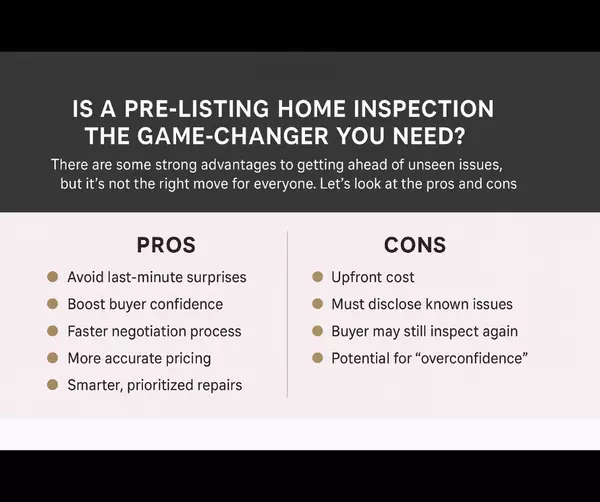New Year's Resolutions: Why They Matter and How to Make Them Stick

New Year's Resolutions: Why They Matter and How to Make Them Stick
Ah, New Year's resolutions - those optimistic promises we make to ourselves as the calendar flips to January 1st. There's something magical about the clean slate of a new year that makes us believe we can conquer anything. Yet, for many, those resolutions are as fleeting as the leftover holiday cookies. So how can you turn your goals into lasting change?
The Appeal of New Year's Resolutions
New Year's resolutions are a tradition for a reason. They're an opportunity to reflect on the past year and set intentions for the one ahead. Whether it's improving your health, career, relationships, or even your living situation, resolutions are a way to channel optimism into action
But let's be real: most resolutions don't make it past February. Studies show that nearly 80% of people abandon their resolutions by the second month of the year. Why? Because resolutions often rely on willpower alone, and willpower is a finite resource. The key to success lies in how you approach your goals.
Common Pitfalls of Resolutions
Overambition: Setting goals that are too big or unrealistic can lead to frustration.
Example: "I'll lose 50 pounds in two months."
Vagueness: Resolutions like "get healthy" or "save money" lack clear direction.
All-or-Nothing Thinking: Missing one workout or splurging once doesn't mean you've failed, but many treat it that way.
Lack of a Plan: Without actionable steps, resolutions are just wishes.
How to Help Make Resolutions Stick
Be Specific: Define exactly what you want to achieve.
Instead of "get healthy," try "eat vegetables with every meal."
Start Small: Break your goal into manageable steps.
If you want to run a marathon, start with a 5K.
Create Accountability: Share your resolution with a friend or join a group with similar goals.
Track Progress: Keep a journal or use an app to monitor your achievements. Small wins add up.
Celebrate Milestones: Reward yourself along the way to stay motivated.
Resolutions vs. Lifestyle Changes
While resolutions are often about short-term wins, lifestyle changes focus on creating sustainable habits that align with your values. Here's how they differ:
Resolutions: These are goal-oriented and often tied to specific outcomes. For instance, "I'll lose 20 pounds" or "I'll save $5,000." They're great for targeting a specific objective but can falter if the focus is solely on the result.
Lifestyle Changes: These are about adopting behaviors that become a natural part of your daily life. For example, "I'll prioritize whole foods in my diet" or "I'll create a monthly budget and stick to it." These shifts are more flexible and often more successful over time.
Why the Difference Matters
When you focus on lifestyle changes, you're less likely to view a misstep as a failure. Missed a workout? That's okay - your overall commitment to moving more remains intact. Forgot to stick to your budget one month? Reassess and try again. Lifestyle changes allow for growth and adaptation, making them more resilient to life's ups and downs.
Blending resolutions and lifestyle changes can lead to greater success. For instance, instead of resolving to go to the gym every day, you might aim to integrate physical activity into your routine, whether it's walking the dog, dancing in your living room, or trying a new fitness class.
Applying the Resolution Mindset to Real Estate
Resolutions aren't just for personal goals - they can apply to bigger decisions like buying or selling a home. Thinking about upgrading to a new place or downsizing?
Start by setting clear goals:
For Buyers: What's your must-have list? (Be realistic about must-have vs. wants) Location, size, budget?
For Sellers: What updates can you make to maximize your home's value?
Just like personal resolutions, real estate goals require planning, patience, and the right support. That's where I come in. If your 2025 plans include finding your dream home or preparing to sell, I am here to help you turn those goals into reality.
FAQ: All About Resolutions
Question: Why do most New Year's resolutions fail?
Answer: They're often too vague, overly ambitious, or lack a clear plan. Focusing on small, actionable steps can help.
Question: How long does it take to form a habit?
Answer: On average, it takes about 66 days to turn a new behavior into a habit. Consistency is key.
Question: Can I start a resolution at any time?
Answer: Absolutely! The New Year is a popular starting point, but any day can be the beginning of a new goal.
Question: How can a resolution help me with real estate decisions?
Answer: Resolutions can provide clarity and motivation. For example, if your goal is to buy a home, you might resolve to save a specific amount each month for a down payment.
Get Ready to make 2025 your best year yet!
Categories
Recent Posts











